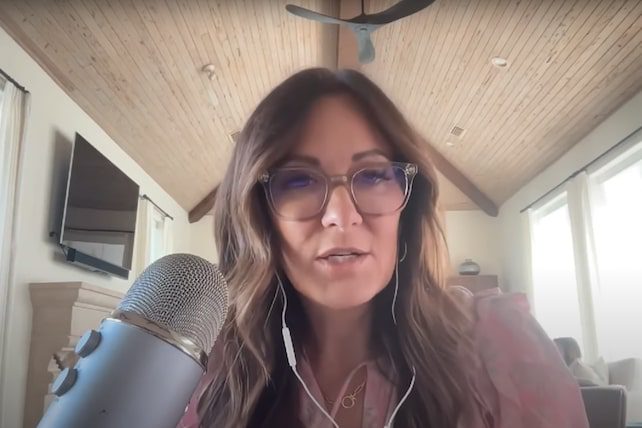It’s important to note that we’re all going to make mistakes at some point. Just because someone does so is not a reason to see him or her as untrustworthy. And it is good to believe the best about people initially. However, church leaders should be on the lookout for red flags and for patterns of behavior.
“Believe the best until they beg you otherwise,” TerKeurst advised. “But there are red flags that we can pay attention to…the quicker that we address something we’re seeing and we seek clarity for it, the less we will fill in the gap with our own narrative.”
TerKeurst explained that in her own life there have been times when she was unsure whether she was reacting in fear to a certain situation because of her past experience or whether she was having a wise instinct. Her betrayal therapist advised her to “investigate,” meaning, said TerKeurst, “Ask clarifying questions. Get curious, not furious. And without placing judgment on that person.”
A safe, trustworthy person will welcome clarifying questions and will want to put the concerned person at ease. But if someone reacts by becoming defensive or angry, those are signs that something could be off.
“Our brain is always wanting to be in a situation where it can analyze that we’re safe. But when that’s disrupted by something that seems hurtful or fearful or something confusing we don’t understand, we must seek clarity,” TerKeurst said. “And when the other person provides it, oftentimes the trust is reestablished immediately, and we carry on and that relationship feels even more safe because of how that person responded.”
The ministry leader warned that “unresolved hurt inside of us will always be multiplied outside of us if we don’t deal with it…One thing we don’t want to do is allow the hurt that’s happened to us to change us in such a way that then we start unleashing that hurt on other people.”
Church leaders need to recognize they are going to navigate pain caused by the people they are leading and should be prepared with the tools to respond wisely. “The temptation I see a lot is church leaders want to put a pretty big buffer between themselves as a teacher and a preacher, and then interacting with the people that are sitting in our congregation or following along,” TerKeurst said.
RELATED: Henry Cloud: Trust Is More Complex Than You Might Realize
She shared that she has experienced some “extremely hurtful” comments from others and that she relates to the impulse to distance herself. “My natural tendency is to want to isolate away rather than to press in,” said TerKeurst.
“When we’re a leader and we get hurt, of course you’re going to have hard feelings. Don’t shame yourself for that,” TerKeurst continued. “But it’s that second thought. It’s that second word. It’s that second moment where we’re developing a narrative about people or that person or that organization.”
“That’s where we really need to take a step back and ask for help if we need help, and then certainly getting into God’s Word,” she said.
“You know,” TerKeurst concluded, “I’ve found sometimes when I want to get into God’s Word the least is when I actually need to get into it the most.”

